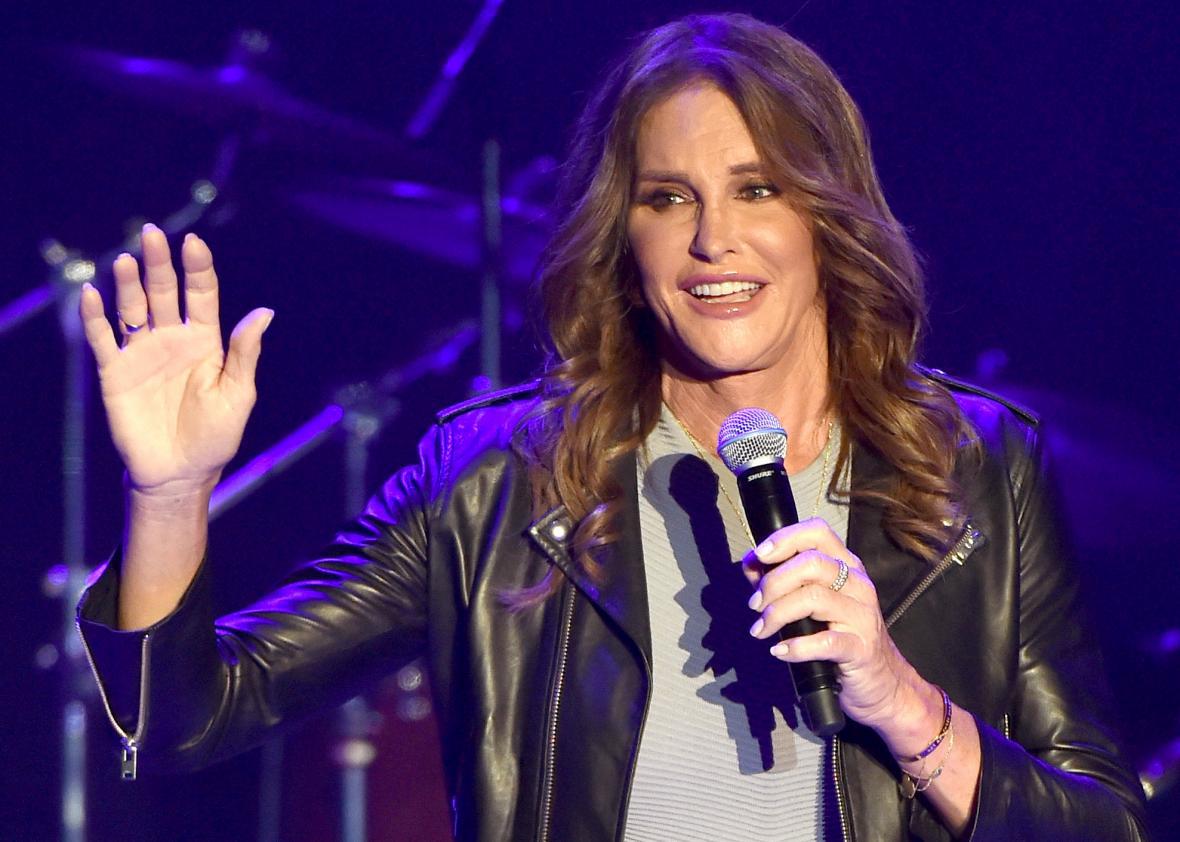Last week, I wrote about a string of comments from Caitlyn Jenner that showed her personal politics—on issues ranging from same-sex marriage to transphobic Halloween costumes—to be notably adrift from the LGBTQ mainstream. As I said then, being gay or trans obviously does not oblige one to take any particular position on policy or humor—we queer folks are a diverse group, and that diversity extends to ideology. Of course, our marginalization means that certain positions—say, supporting a Republican Party that continues to rail against the best interests of queer people—will seem odd or troubling when adopted by a queer person and likely come under criticism from fellow queers. That arguably the most well-known trans woman of the moment was producing a parade of that kind of dissonance seemed worthy of note.
While the large majority of readers shared my confusion, a certain contingent pushed back. Jenner is new at this LGBTQ community thing, the more compassionate line went; you’re being too harsh and should give her more time to come around. “To be fair,” one commenter wrote, “she never really asked to be the spokesperson for the trans or LGBTQ community or to be considered a ‘hero’, just wanted to live as the gender she identifies as. And women come in all sorts.”
I definitely endorse that last thought—but the previous point, that Jenner doesn’t want to be a spokeswoman or a hero and just aims to live quietly? Hardly. From the beginning of Jenner’s public transition—the relentless teasing of the Diane Sawyer interview and the splashy Buzz Bissinger cover story, the perfectly timed reality show launch and endless stream of interviews and appearances—she has made her trans identity central to her celebrity and continued income. To be clear, there is nothing necessarily wrong with doing this. But it absolutely opens that person up to heightened scrutiny and necessarily politicizes her actions, especially when that person knows very well that she is the face of “trans” for many cis/straight Americans. It is not “harsh” to critique her rhetoric; to the contrary, it would be foolish and unethical not to.
Also, it works. In a post to her own blog today, written on the occasion of the season finale of her E! show, I Am Cait, Jenner seemed to respond to the criticism, noticeably strengthening her support of same-sex marriage and admitting that “I’m far from perfect and will make some mistakes along the way.” Jenner also advanced her own version of the “we’re all different” argument:
One of the many lessons that these fabulous women have taught me is that—despite all being transgender—they each feel differently about particular issues. It’s important to have an open dialogue with the trans people in your life about their unique viewpoints and not lump us all together. Just because I think something is funny or appropriate, doesn’t mean that all trans people feel the same way and vice versa. I can only speak from my own personal experience and in no way can I represent the entire trans community. My opinion is just that, my own opinion. There’s no one way to be trans!
All this is well-taken. But the fact remains that Jenner has a platform—one that she has aggressively constructed and that exists in its enhanced state because she is out as trans. And, right or wrong, what she says counts in the minds of many observers as far more than her “own opinion.” Yes, everyone deserves the chance to learn and grow; but then again, feeling empathy for your fellow queer or seeing how shrugging off the work of the activists who laid the way for your grand entrance might be bad form don’t seem to be the hardest “lessons” to learn. Perhaps any toddling about might be better done in private before you enter the public eye in such an intense and willful way. Because once you’re there, you can and should be held accountable for your missteps. That’s how real community works.
